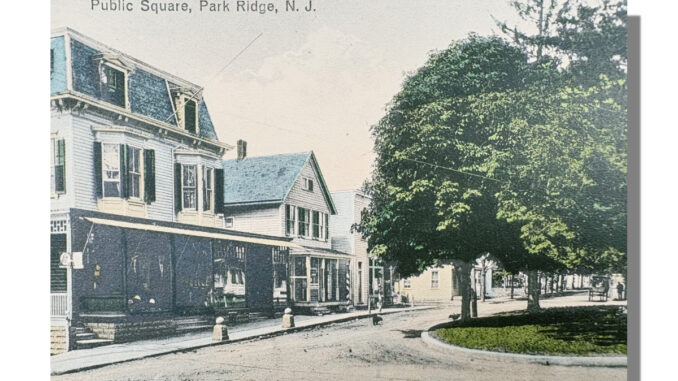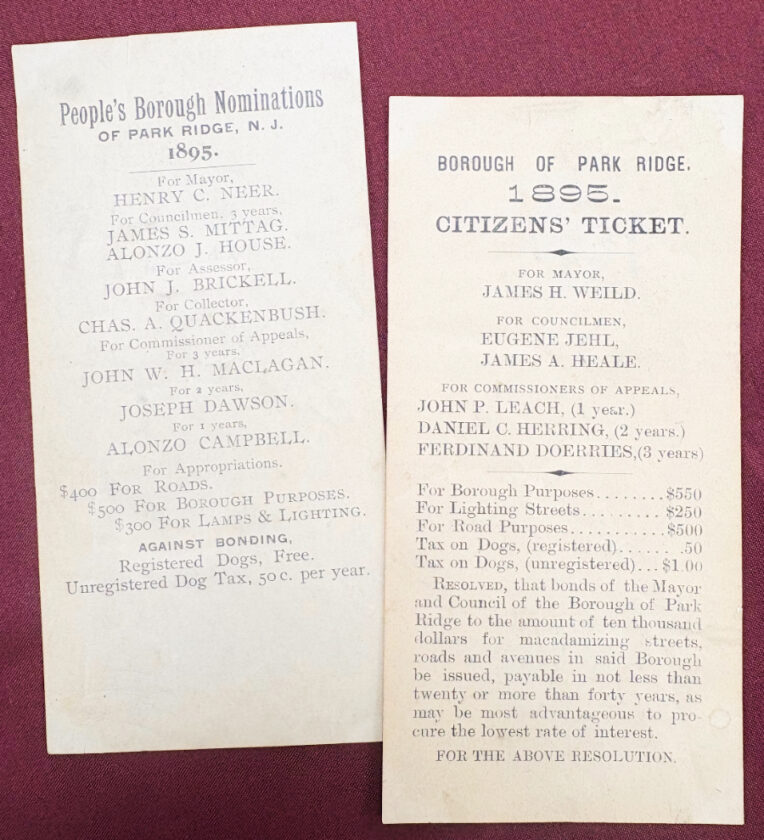
PARK RIDGE—As Election Day approaches, here is a look at the political scene in one Pascack Valley town 130 years ago.
Park Ridge had broken off from Washington Township and formed a borough one year earlier. In the borough’s first election, in 1894, country doctor Henry C. Neer had battled bobbin manufacturer James Weild in an explosive contest to become the borough’s first mayor. Wield had won by a lone vote.
Back then, the mayoral term was for only one year. In 1895, the physician and businessman were at it again.
You might notice some unfamiliar party names on the top of the tickets. In 1890s Park Ridge, the most critical rivalry was not between Democrats and Republicans. It was between the farmers and the commuters.
One faction was called the People’s Party, although the opposition condescendingly nicknamed them the hayseeders and punkin’ dusters. These were the farmers whose families had called the Pascack Valley home for generations. They wanted to keep to the old ways and generally opposed spending tax dollars on modernizing. If it was good enough for their grandfathers, it was good enough for them.

Then there was the Citizens’ Party, the new population who had come to Park Ridge in the late 19th century after the opening of the railroad. Most commuted to New York City for work. This progressive group favored better schools, improved roads, and expanded services, even if those things meant paying more in taxes. They had pushed for Park Ridge to break off from Washington Township and form a borough.
The ideological divide between the parties is evident in the 1895 election tickets. The sums listed are not “per taxpayer,” but represent the full borough budget.
Indeed, Park Ridge’s entire municipal budget in the year 1895 was smaller than the amount any Pascack Valley household pays in 2025.
The Citizens’ Party proposal included $550 for borough operating expenses, $250 for lighting the streets (this was with kerosene lamps, not yet electricity), and $500 for road maintenance.
As it also states on their ticket, they wanted to bond for $10,000—equivalent to nearly $400,000 today—for macadamizing Park Ridge’s dirt roads. That last one was the most contentious issue of the election.
The People’s Party wanted to spend a more modest $400 on roadwork and $500 on operational costs; they were much more excited about those kerosene lamps, at a proposed $300. They flatly opposed the plan to macadamize roads.
Maybe the price tag on road improvements put off some of the voters, because this time, Neer won the election. He served one term as mayor.
